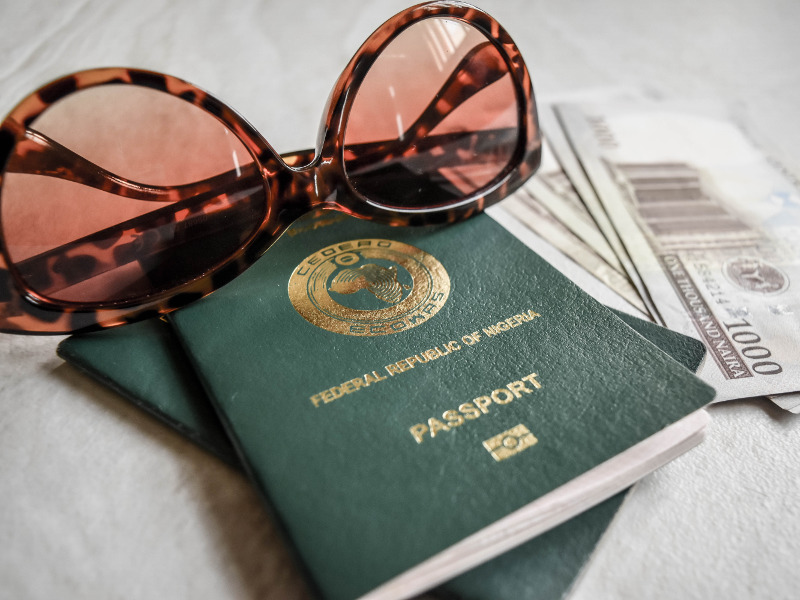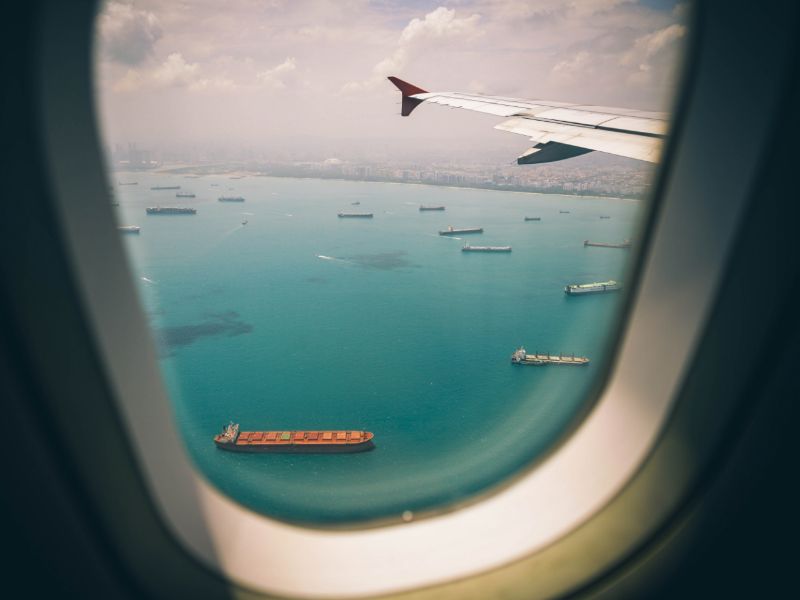
Travelling with peace of mind is probably the best travel buddy you could ask for. It’s not often that an unforeseen incident occurs while travelling, but when it does, you don’t want to be caught with your pants down. If you’re lucky it might be minor like the loss of a piece of property such as a mobile phone which is fairly easy to replace. If the airline liquidates, however (which has been known to happen), and you don’t have travel insurance, that would be an awful waste of money and a very sad way to start your holiday. Here’s a quick guide to the importance of travel insurance and why you should never overlook it.

Photo Credit: Lonely Planet via Unsplash
What is travel insurance and what does it cover?
In short, travel insurance is an insurance package or comprehensive protection against any unexpected occurrences during your travel resulting in you to either delay or cancel your trip beforehand or for anything that happens during your travels which may cause you a huge financial loss. Buying travel insurance will protect you from unforeseen incidents.
What does my travel insurance cover?
Different packages will cover different individual needs so you would have to check which package meets all your travel requirements and how much premium you are prepared to pay upfront. For example, going on a skiing trip would require a different insurance package to one which would be required for a quiet Mauritius holiday. Depending on your package, below is a list of items your package could cover. You, of course, would need to verify this with your insurance company:
- Trip interruption
- Trip cancellation
- Trip delay
- Lost or delayed baggage
- Medical coverage
- Medical evacuation
Why is travel insurance important?
Travel expenses can be very overwhelming hence why a lot of travellers opt out of travel insurance to save a penny here and there. This is not advised at all as there is no way of recouping any costs after the fact. Unfavourable incidents may not always happen, but when they do it really will be a very unpleasant surprise which could stop all your travel arrangements in their tracks before you even start packing.
Below are 3 really good reasons why you should purchase travel insurance:
- Protect the cost of your trip if you have a travel delay or need cancellation,
- Offset added expenses due to a travel delay or lost, delayed or damaged luggage,
- Protection from expensive medical bills in case you are injured or become ill while travelling abroad.
When purchasing your travel insurance, you should ensure that your policy covers all of the above-mentioned points to avoid any surprises.
How much does travel insurance cost?
The general rule is that your travel insurance can cost you up to 10% of your of your total prepaid, non-refundable flight cost. So for example, if your flight ticket was ₦250,000 your travel insurance should cost anywhere from ₦25,000, depending on your insurance company and possibly one or two other variables.

What does excess mean on travel insurance?
When you take out your travel insurance policy, you and your insurer will come to an agreement as to how much you will pay should an unfortunate situation arise. This is known as excess.
There are two types of excess, standard excess and voluntary excess. Standard excess refers to the standard amount agreed by you and your insurer, and voluntary excess means you are able to increase or decrease the amount you’re responsible for in a claim.
If you would like to reduce the amount you pay for your travel insurance, increasing your excess is the easiest way. In the event you need to claim on your insurance, you will, however, be required to cover a bit more of the cost related to the incident you are claiming for.

Photo credit: rawpixel via Unslpash
Travel insurance on your credit card
Although the premium will depend on the package you purchase, don’t just consider the insurance premium in isolation. You also need to look at what you are covered for. Some travel insurance is free, for example through your bank, when you purchase your pre-paid, non-refundable trip cost on your credit card. Some bank travel insurance policies may offer unlimited cover for medical repatriation while others may have a limit of, say, ₦250,000. This may sound like a lot of money but, as a foreigner, medical expenses can be exorbitant, and ₦250,000 may not even touch sides for the medical treatment you may be faced with on your travels.
If you are travelling with your family, the credit card travel insurance may not cover all insured members equally. As a general rule, the maximum cover is given to the principal cardholder. This may not be ideal for your children. Children often get sick when travelling as the food may not be what they’re used to. You definitely want your children to be 100% covered in the event of illness
Does travel insurance cover per person?
If you’re travelling on your own, then you will only purchase an individual travel package. If you are travelling with your family then we would advise that you purchase a family policy instead of individual plans for each member. Again you will have to double check the coverage with your insurance company as family policies usually cover two adults and two children. If you have more than two children then you would want to find a plan that covers unlimited children. Travelling with a family can be like herding cats so it is very easy to come across unfortunate circumstances like loss of luggage or maybe even illness.
It’s a good idea to take out lost baggage protection for your family trip.

Photo Credit: Ali Yahya via Unsplash
Who is considered a family member for travel insurance?
To be considered a family member you would need to be related by blood or by marriage. You cannot, for example, be covered for a cancellation or medical evacuation if your boyfriend/girlfriend’s family member passed away. The following are generally considered as family members:
Spouse, child, spouse’s child, daughter-in-law, son-in-law, brother, sister, mother, father, grandparents, grandchild, step-brother, step-sister, step-parents, parents-in-law, brother-in-law, sister-in-law, aunt, uncle, niece, nephew. Each policy will have a varying checklist of who is considered a family member so please double check this before you take out the policy.

Photo credit: Thought Catalog via Unslpash
Does family travel insurance cover individuals travelling alone?
All policies are different but for the most part, a family policy should cover all family members when travelling provided their names are on the policy and provided minors (under the 18 years) are accompanied by an adult over the age of 18. The adult does not necessarily need to be named on the same policy as the children. It is, however, the onus of the parent to ensure all grounds are covered before the minor leaves on the trip.

Photo credit : @vangilemakwakwa via Instagram
Can you buy travel insurance after booking a flight?
Like any insurance policy, travel insurance is not compulsory, nor will anyone try to stop you from flying without it but we would strongly advise that you take out travel insurance. Beware that some countries (e.g. Schengen states) require you to take out medical travel insurance before issuing you a visa. You can usually purchase travel insurance up to a minimum of 24 hours before you travel. Again, the rules here may vary from company to company. This should give you enough time to do your homework on which policy suits you or your family best.
Travelstart allows you to purchase comprehensive travel insurance up to 24 hours after purchasing your ticket, provided you are a Nigerian citizen between the ages of 18-65 years.
I have already departed. Can I still purchase travel insurance?
It is very important to remember that you cannot purchase travel insurance once you have departed for your flight. Your trip cancellation cover will have to be purchased before departure. You might still be able to get trip interruption or emergency medical evacuation or medical expenses post departure. It is best to consult a travel health insurance company to assist you with this.

Photo credit: Fancy Crave via Unsplash
What is considered a travel delay?
Unfortunately waking up late or being delayed by a work engagement may not allow you to claim on your insurance. Below is a list of reasons which may be covered by your insurance:
- Hijacking,
- Natural disasters
- Unannounced protesting or strikes,
- Quarantine,
- Lost or stolen passport,
- Loss of money or credit card,
- Loss of travel documents,
- An accident on the motorway

Photo credit: Collins Lesulie via on Unsplash
Also read: What to do if you miss your flight
I am sick. Can I cancel my flight?
You will have to check your policy on this one but as a general rule your domestic or international flights can only be reimbursed or rebooked if you can produce a doctor’s certificate stating that under no circumstances were you able to fly due to illness. Some travel suppliers offer a cancellation policy (which you would have to have bought when purchasing your ticket) which will allow you to cancel up to 48 hours or more before your departure. You never know when you might fall ill. Make sure you have taken the necessary precaution in the event of cancellation with our medical cancellation protection policy.

Photo credit: rawpixel via Unsplash
Arranging travel insurance can be quite daunting but with a bit of research, you can find the correct policy to best suit your travel needs.
See Travelstart’s range of travel insurance policies to choose for your next trip.
What helpful travel insurance tricks have you come across in your travel? Please share them with us in the comments below.
Remember to sign up for our newsletter for more travel tips and great flight deals!
Post written by Zeni Meiring

